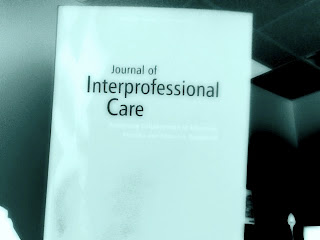We need to generate good quality evidence to help us understand the processes, outcomes and impact (positive, neutral, harmful) of the things we do in order to advance our knowledge and inform our practices and policies. At present, empirically, we know from the findings of systematic reviews and other literature syntheses that interprofessional education (IPE) mainly rests on a large number of descriptive studies. We also know that this research tends to be undertaken in the form of small single-site studies of pilot IPE activities, which largely focus on presenting short term (self-reported) learner outcomes concentrated on changes to attitudes, perceptions, knowledge and skills. Although as a result of this empirical focus, we have a poorer understanding of long term outcomes of IPE on individual and/or collective behaviour of the participating professionals. We also have a limited understanding of the learning/teaching processes that occur within IPE, which means we still struggle to know empirically, for example, what elements contribute to an effective interprofessional facilitation. Similarly, we have a poor idea of patient/client perspectives, and little insight into the organizational issues which underpin the development and delivery of this form of education.
(Scott Reeves, Editor-in-Chief)
(Scott Reeves, Editor-in-Chief)
To read more see: Ideas for the development of the interprofessional field. Journal of Interprofessional Care; 24:217-219.
